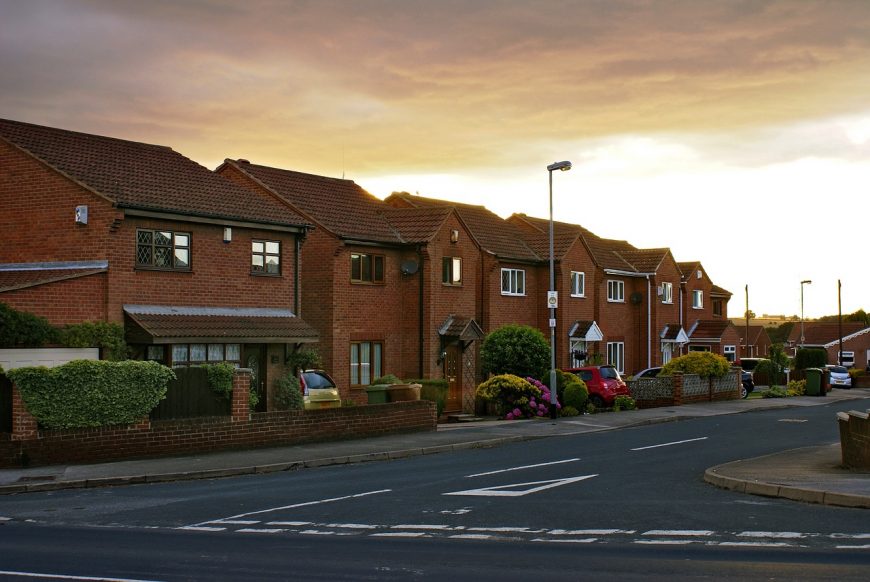
Property in the UK takes on average 102 days to sell
It now takes, on average, 102 days to sell a property in the UK, according to Post Office Money.
Its latest ‘City Rate of Sale’ report, developed with the Centre for Economics and Business Research (Cebr), looked at the average time it takes for a property to sell in 35 major UK cities. Overall, the average seller had to wait one week more before receiving an offer – increasing from 96 days in 2017.
Analysing the rate of sale Homeowners in Scottish cities Edinburgh and Glasgow see their homes sell fastest in the UK, spending 39 and 48 days on the market respectively. Glasgow’s market also
remained competitive, recording the fastest house price growth of all the major UK cities. When compared to the rest of the UK, properties in both cities are relatively affordable. Both cities have also witnessed strong population growth which has increased demand for houses in areas with an undersupply of homes.
At the other end of the spectrum, London and Blackpool saw properties taking the longest to sell – 126 and 131 days respectively. The capital’s expensive properties – fuelled by years of double-digit house price growth – tend to take longer to sell. Properties over £1 million take 171 days on average to sell, whereas cheaper properties take only 99 days.
Meanwhile, properties in Blackpool are typically very affordable, but being home to the oldest average population, the city may not be benefiting from the recent rise in first-time buyer sales.
Ross Hunter, spokesperson for Post Office Money, said although properties are taking slightly longer to sell, it doesn’t mean that interest in moving up the housing ladder is waning. In fact, Post Office Money has seen a rise in mortgage applications and approvals in the last year.
“First-time buyers have actually increased by 12% across the market in the last year alone, encouraged by the reduction made to stamp duty costs and mortgage innovation,” he added. “We also know that housing supply has increased significantly –the number of homes completed in Q2 2018 was up 7% in England compared to the previous quarter, so there are more properties available to choose from for perspective buyers.”
Year-on-year changes to time spent on the market Affordability hotspots Belfast and Swansea saw the biggest fall in the time properties spent on the market – 17 and 14 days less than last year respectively. Currently, Belfast has limited availability of housing stock, with properties spending less time on the market before being purchased.
Swansea, meanwhile, is affordable and an easily commutable distance to Cardiff, which has sustained demand there and led to a fall in time spent on the market. Elsewhere, properties in Bristol and Luton are taking nearly 20% longer to sell – spending 62 and 83 days on the market. This is due to housing in both cities becoming unaffordable compared to other locations in the UK, limiting demand and causing houses to spend longer on the market.
In 2017, the average cost of a house was 9.57 times the average wages paid to a worker in a year in Luton, and 10.91 times the average wages for workers in Bristol. Deal or no-deal? Post Office Money partnered with property-tech provider, Gazeal, to investigate the scale of offers that fall through once an offer has been made. Gazeal provides a system for property sales which legally binds both parties when they are ready to agree a deal.
Their data revealed that one in three (35%) people see their sale fall through within the first three weeks of the transaction when searches are taking place, and 44% experience their sale fall through within four weeks when surveys are taking place. According to data from the Treasury, consumers spend £270 million a year on failed housing transactions. Buyers and sellers in Blackpool, where properties take the longest to sell, are the most likely city to see their sale fall through within the first three weeks (44%) and four weeks (53%).
Of all ongoing property transactions, 16% of consumers experience gazumping – when a seller accepts a verbal offer on the property from one potential buyer but then accepts a higher offer from someone else. Buyers in Sheffield were most likely to be a victim of this (35%), compared to 6% of buyers in Blackpool, where there are less buyers interacting with the market. “Most people know that getting an offer on your home is only the first hurdle in the process of selling your property,” said Steve Dawkins, spokesperson for Gazeal. “As the market has remained competitive, the trend for gazundering and gazumping is rife – where previously agreed offers are later broken by one of the parties involved. This has left 65% of all buyers and sellers worried about whether they will make it to completion following an offer being accepted.”
He added: “This is why a problem most modern homeowners will face at some point, and is why we established Gazeal, to create a service which saw any offers made on a home secured, giving both the buyer and seller peace of mind.”